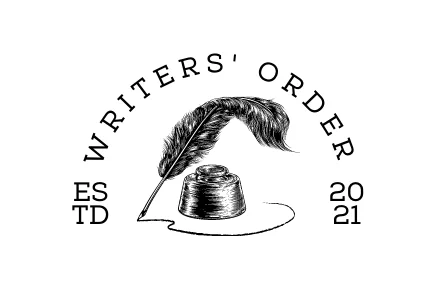You have to be the change to bring the change.

May the Odds be Ever in Your Favor – DEFINITION & HOW TO USE
Our content is reader-supported. We may earn a commission if you make a purchase through one of our links.
What was once just a unique dialogue in The Hunger Games (2012) has gained popularity and has been coined into a trendy phrase used all over the world, especially by The Hunger Games fans. “Happy Hunger Games! And may the odds be ever in your favor!” – upon hearing this new catchphrase from Effie Trinket as she spoke at the opening ceremony of the Games, even linguists were left scratching their heads.
The word choice and placement in the phrase are indeed a little confusing and the message may not be easy to grasp even for the native English speaker.
What is the Meaning of the Expression “May the Odds be Ever in Your Favor”?
“May the odds be ever in your favor” is another way of saying good luck. This phrase uses elaborate and beautiful language to say the same thing as ‘may luck always be on your side.’ It comes from The Hunger Games where a character says the catchphrase to participants at the start of a competition.
Word-by-Word Breakdown of “May the Odds be Ever in Your Favor”
To understand a long phrase, it is often a good idea to break it down into several segments and understand how each part adds meaning to the phrase to formulate one cohesive message.
Here is the word-by-word breakdown of the phrase in-discussion.
May
“May” is a modal verb used to express one’s desire for something to happen in the future.
Among the three primary uses of May, i.e., asking permission, expressing possibility in the present, and expressing a desire for the future, the meaning of the word in this context is the third one.
Similar uses of the word “may” are, “may the Force be with you,” or “may you find kindness in all that you meet.” In all these cases, the word is used to express one’s wish for something to be the case in the future.
You might also want to look at the difference between “may” and “might.”
The Odds
“The odds” are the subject of the sentence. When we say the phrase, we express our desire for “the odds” to be in a certain way, that is, in your favor.
“Odds” are simply the chances of winning or luck. Although the general meaning of “odds” as a probability of something happening is the same across uses, the word is used a bit differently in this phrase as it is usually used.
For instance, “what are the odds?” means “what are the chances?” where the word “odds” directly refers to chances or probability.
When we say, “may the odds be ever in your favor,” we are referring to “the odds” as luck. If we replaced “the odds” with “luck” in the phrase, it would convey the same message.
Be Ever
The two words “be” and “ever” are a verb and adverb respectively. While the verb describes what the subject is doing, the adverb, in turn, describes the verb, as in how, when, and where.
“Ever” can have two meanings, “at any time” or “at all times / always.” In this case, the word represents the latter.
The verb “be” denotes the state of being of “the odds” while the adverb “ever” means the odds are in this state of being always.
To simplify the original phrase, we could replace “ever” with “always.” “May the odds be always in your favor” much easier to understand than the original form.
In Your Favor
While “the odds” are the subject, “be ever in your favor” is the predicate of the sentence. The predicate states what the subject is doing in a sentence and may also describe the verb.
The term “in your favor,” can be used to say, “in your advantage,” or “on your side.”
Similar uses are “fortune favors the brave” or “may luck be in your favor.” All in all, the last three words of the phrase imply that the odds, or luck, be on your side.
Why Using This Phrase is Not as Simple as it Seems?
“May the odds be ever in your favor” is not as well-wishing and sincere a thing to say as it seems on the surface. Hunger Games fans know this catchphrase has got a devious touch to it.
The fictional character, Effie Trinket, seemingly wishes luck to the participants of a death game with this phrase.
For those who have watched, the movie, it becomes apparent that the character does not really mean what they are saying as they say it with an amusing smile on their face.
How to Use “May the Odds be Ever in Your Favor”
Using this phrase is not as straightforward as using its simpler counterparts, “Good Luck!” or “I wish you luck.”
To avoid an awkward situation, you should be aware of the intricacies of using the phrase. Bear in mind that it is only suitable to wish someone well with this phrase if they are good friends with you.
The phrase can also be used with people who are well-aware of its origins and won’t find it hard to understand what you just said.
Here are a few examples of how to use “May the odds be ever in your favor.”
Friend: I forgot to tell you, I’ve got an interview next week.
You: Oh, that’s great news!
Friend: Yeah, there’s a lot of competition so it’s going to be tough.
You: Oh well, may the odds be ever in your favor.
You: I’m nervous about the match we’ve got tomorrow, we’ve got no chance of winning against the other team!
Your brother: Don’t stress yourself. It’s not going to be that tough.
You: Well, we’re going to need a lot of luck if we ought to win.
Your brother: May the odds be ever in your favor.
You: Ha-ha! Let’s hope so.
In conclusion, it is worth keeping in mind that like many other catchphrases, this one too cannot be used in every setting. You may only make use of this expression in a fairly light-hearted setting where your listener will understand what you mean.



